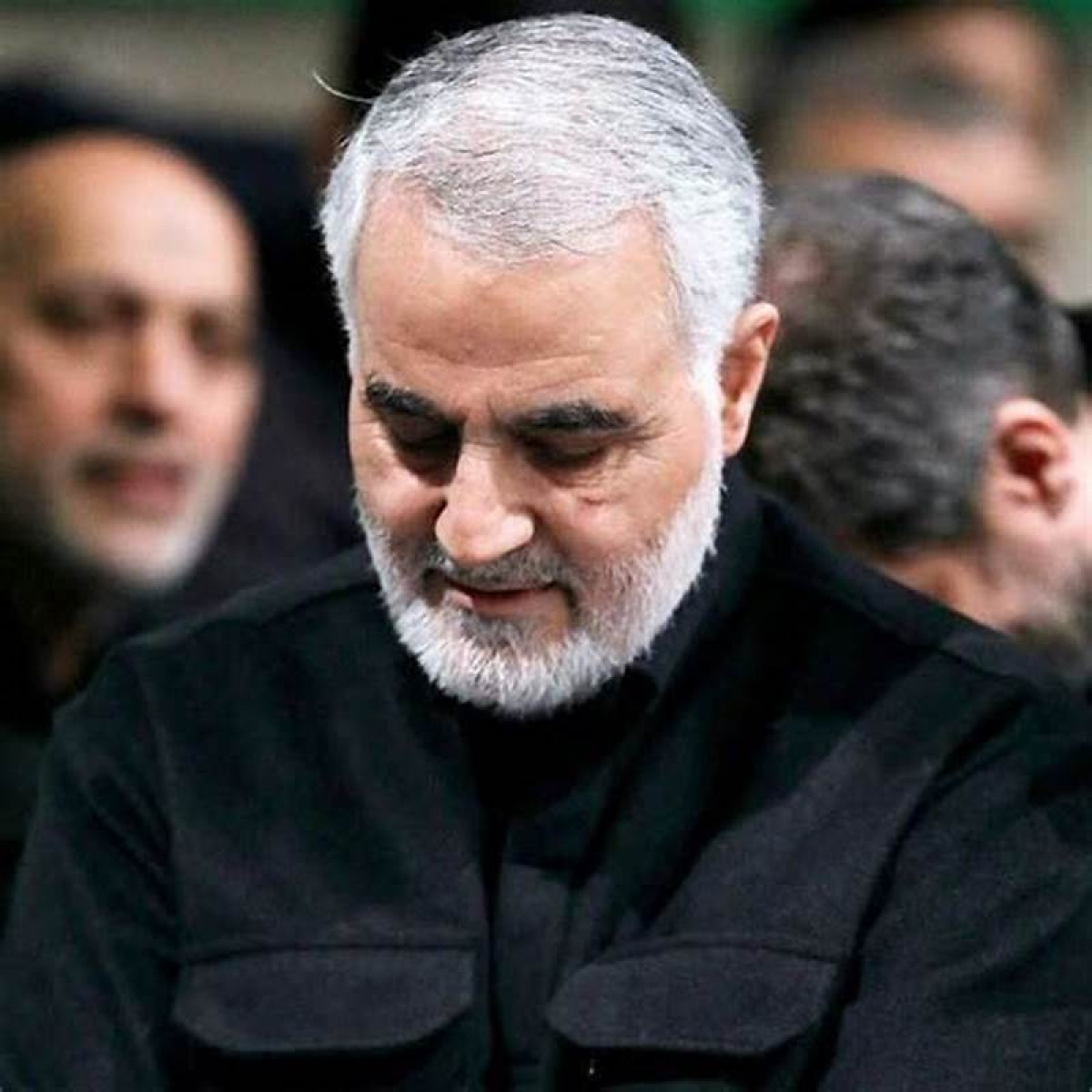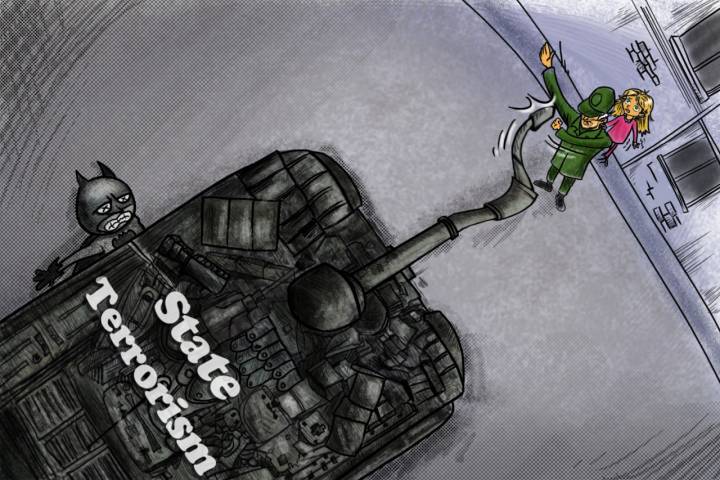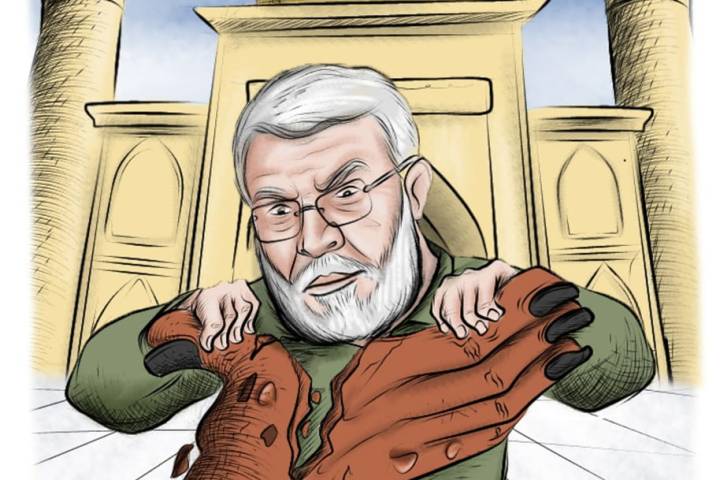After the terrorist attack of the United States back in January last year, which resulted in the brutal assassinating one of Iran’s General Qassim Soleimani at the Bagdad Airport, it is now a good time to assess the benefits of such terrorist act was for the U.S. government and the costs of it.
First of all, what the U.S. did in killing a top general of one country in the territory of another country is not only an illegal conduct in total violation of the spirit and the letter of the UN Charter, but it also damaged the U.S. international image. The terrorist attack showed to the world even more than before that the Americans do not respect international law when it is not in line with their national interests, that they are ready to restore to acts of crime and terror whenever they see their evil plots in the Middle East region in danger, and of course, that the policy makers in Washington, especially Donald Trump, are very naïve and were not thinking in advance that their terrorist attack would not be without response from the part of Iran. After the assassination of General Soleimani a wave of emotions and fury overwhelmed the whole Iran and Iranian officials vowed a hard revenge for the U.S. government.
Supreme Leader Ayatollah Khamenei paid tribute to him as a “martyr” and promised to exact “harsh revenge”. He then announced three days of national mourning in honor of late General Soleimani. Iranian President Hassan Rouhani also echoed the threat of revenge and vowed that there would be consequences. Foreign Minister Javad Zarif condemned the killing as an “act of state terrorism” in a statement.
Less than one week after the U.S. terrorist attack, Iran fired the ballistic missiles, targeting the U.S. al-Assad air base in western Iraq and the Erbil base, which is in Iraq’s semiautonomous Kurdish region. The Ain al-Assad base was used by U.S. forces after the 2003 invasion that toppled dictator Saddam Hussein and currently houses about 1,500 U.S. and coalition forces. “It was a massive attack with ballistic missiles,” a U.S. official who was not authorized to speak publicly told USA TODAY a day after the attack.
This harsh revenge was only one of the series of heavy costs that the U.S. paid and still is paying after the assassination of General Qassim Soleimani;
Another costly drawback for the Americans was that they lost their influence in Iraq and now all the Iraqi people and even the Iraqi government want them to leave the Iraq for good; Following the assassination, Iraqi MPs have passed a resolution calling for foreign troops, especially including more than 5,000 American troops, to leave the Iraqi lands. “The government commits to revoke its request for assistance from the international coalition fighting Islamic State due to the end of military operations in Iraq and the achievement of victory,” the resolution reads. The fact about this resolution is that unlike laws, it has a non-binding nature, but has the backing of Prime Minister Adel Abdul Mahdi, who had earlier called on parliament to end foreign troop presence. And now, Washington seems to has learned its lesson that for every illegal intervention that Americans seek in the Middle East region, there are always countries that are ready to stand against foreign dominance and punish the intruder. Last but not least, though the U.S. succeeded in assassinating General Soleimani, the costs of this so-called victory for Americans proved to be way higher than the benefits of it.
2
First of all, what the U.S. did in killing a top general of one country in the territory of another country is not only an illegal conduct in total violation of the spirit and the letter of the UN Charter, but it also damaged the U.S. international image. The terrorist attack showed to the world even more than before that the Americans do not respect international law when it is not in line with their national interests, that they are ready to restore to acts of crime and terror whenever they see their evil plots in the Middle East region in danger, and of course, that the policy makers in Washington, especially Donald Trump, are very naïve and were not thinking in advance that their terrorist attack would not be without response from the part of Iran. After the assassination of General Soleimani a wave of emotions and fury overwhelmed the whole Iran and Iranian officials vowed a hard revenge for the U.S. government.
Supreme Leader Ayatollah Khamenei paid tribute to him as a “martyr” and promised to exact “harsh revenge”. He then announced three days of national mourning in honor of late General Soleimani. Iranian President Hassan Rouhani also echoed the threat of revenge and vowed that there would be consequences. Foreign Minister Javad Zarif condemned the killing as an “act of state terrorism” in a statement.
Less than one week after the U.S. terrorist attack, Iran fired the ballistic missiles, targeting the U.S. al-Assad air base in western Iraq and the Erbil base, which is in Iraq’s semiautonomous Kurdish region. The Ain al-Assad base was used by U.S. forces after the 2003 invasion that toppled dictator Saddam Hussein and currently houses about 1,500 U.S. and coalition forces. “It was a massive attack with ballistic missiles,” a U.S. official who was not authorized to speak publicly told USA TODAY a day after the attack.
This harsh revenge was only one of the series of heavy costs that the U.S. paid and still is paying after the assassination of General Qassim Soleimani;
Another costly drawback for the Americans was that they lost their influence in Iraq and now all the Iraqi people and even the Iraqi government want them to leave the Iraq for good; Following the assassination, Iraqi MPs have passed a resolution calling for foreign troops, especially including more than 5,000 American troops, to leave the Iraqi lands. “The government commits to revoke its request for assistance from the international coalition fighting Islamic State due to the end of military operations in Iraq and the achievement of victory,” the resolution reads. The fact about this resolution is that unlike laws, it has a non-binding nature, but has the backing of Prime Minister Adel Abdul Mahdi, who had earlier called on parliament to end foreign troop presence. And now, Washington seems to has learned its lesson that for every illegal intervention that Americans seek in the Middle East region, there are always countries that are ready to stand against foreign dominance and punish the intruder. Last but not least, though the U.S. succeeded in assassinating General Soleimani, the costs of this so-called victory for Americans proved to be way higher than the benefits of it.
2
Abu Mahdi al-Mohandes
Abu Mahdi al-Mohandis
Abu Mahdi al-Muhandis
America
American
Americans
anti-terrorist
Ayatollah Ali Khamenei
Ayatollah Khamenei
Dear Khamenei
Donald J. Trump
Donald Trump
Gen. Soleimani
general soleimani
General Soleimany
qasem soleimani
government
governments
Haj Qasem soleimani
Hard revenge
hard revengre
Imam Khamenei
International
IRAN
iranian
Iranian embassy
Iraq
Iraqi
Iraqi people
Khamenei
killing
Martyr Soleimani
middle east
persons
Qasem Soleimani
Qassem soleimani
severe revenge
Soleimani
Soleymani
territories
terrorism
Terrorist
terrorists
trump
United States
US
USA
Washington






Comment
Post a comment for this article